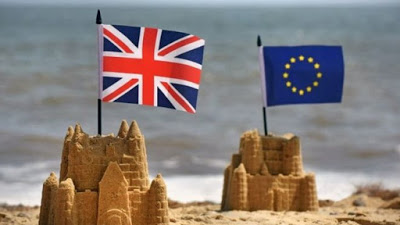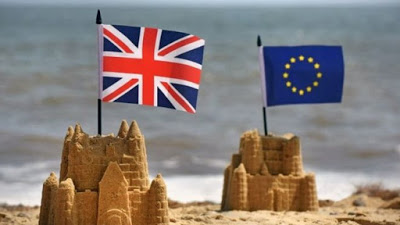The start of the process for Britain to leave the European Union will transform the country itself, while at the same time it will bring the following important changes to the EU:
1. EU budget: Where the money is going
European funds amount to just 1% of public spending in Britain. In Eastern European countries, however, Brussels contributes more. In Poland, European funds account for 8% of the budget and in Bulgaria for almost a fifth. Leaving Britain, the EU will have one-sixth less funds for the recipient countries. This gives rise to controversy between the Member States in Western and Eastern Europe, in view of the seven-year expenditure plan, starting in 2021.
In the short term, moreover, there will be a battle, because Britain will be called upon to negotiate how much it has to pay to the European budget, due to its withdrawal from the EU. The country may choose to continue to pay certain contributions to maintain access to important EU budgets, such as research and development.
2. Balance of forces
Britain used 12% of its vote to cut EU spending. and exert strong pressure on free trade.
Regarding the poorest Eastern European countries, whose accession to the EU. celebrated the UK, they fear that Germany and France will impose restrictions on their low-wage workers. They also think that the EU federal powers may be strengthened. to the detriment of the nationals, which they abstain from. The Balkan countries, which are interested in joining the EU, are losing a valuable ally.
In addition, in the Eurozone the 19 Member States are being unleashed by an opponent of monetary union. Following this development, perhaps they could deport non-euro countries. Such a group, led by Poland and Sweden, would have to secure significant support from countries within the Eurozone to prevent the Eurozone from defining European policy.
Germany is hesitant to consider itself a leading power in Europe due to its economic power, and to coexist with the other EU co-founder, France. Berlin is worried about maintaining balance between them, as France has financial problems.
3. The power of the EU the world is shrinking
The EU loses a major ombudsman with the US and the wider English-speaking world. Britain has historically been a force in the diplomatic and military spheres, while its influence in China, Russia or the Middle East has favored the European Union. In addition, Britain's role proved to be beneficial, as it provided funds to support development in Africa. Finally, the "Black" continent remains a source of intense concern, due to the dense migratory flows from there to the European Union.
The departure of Old Albion from the EU will bring about remarkable changes in the political culture of the European Union as well. First, Britain has been under-represented in the European institutions throughout its membership of the EU. However, these 44 years have left a heavy legacy, as many Britons have held high positions in Brussels and in the European Parliament. Many governments consider Britain's approach to public administration to be more pragmatic and liberal than France's more centralized one, which appears to be clinging to the old Union's data.
Second, Brexit breaks the taboo of the tight coalition. Since the British referendum, European leaders have spoken of reviving a sense of unity among the remaining 27 states. Polls show EU support is strengthened, but unity will be tested solely in the Brussels-London negotiations, where governments will have different priorities.
Source: KATHIMERINI

